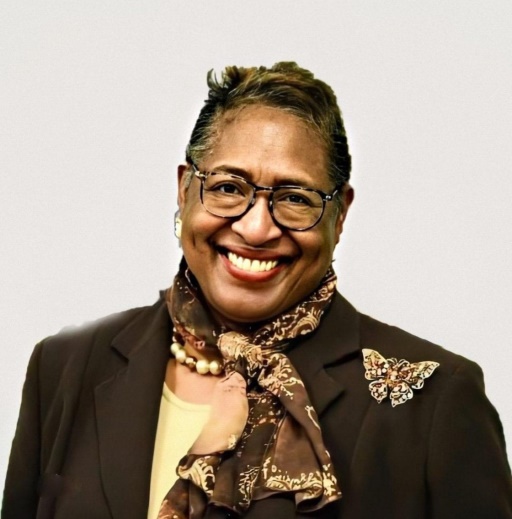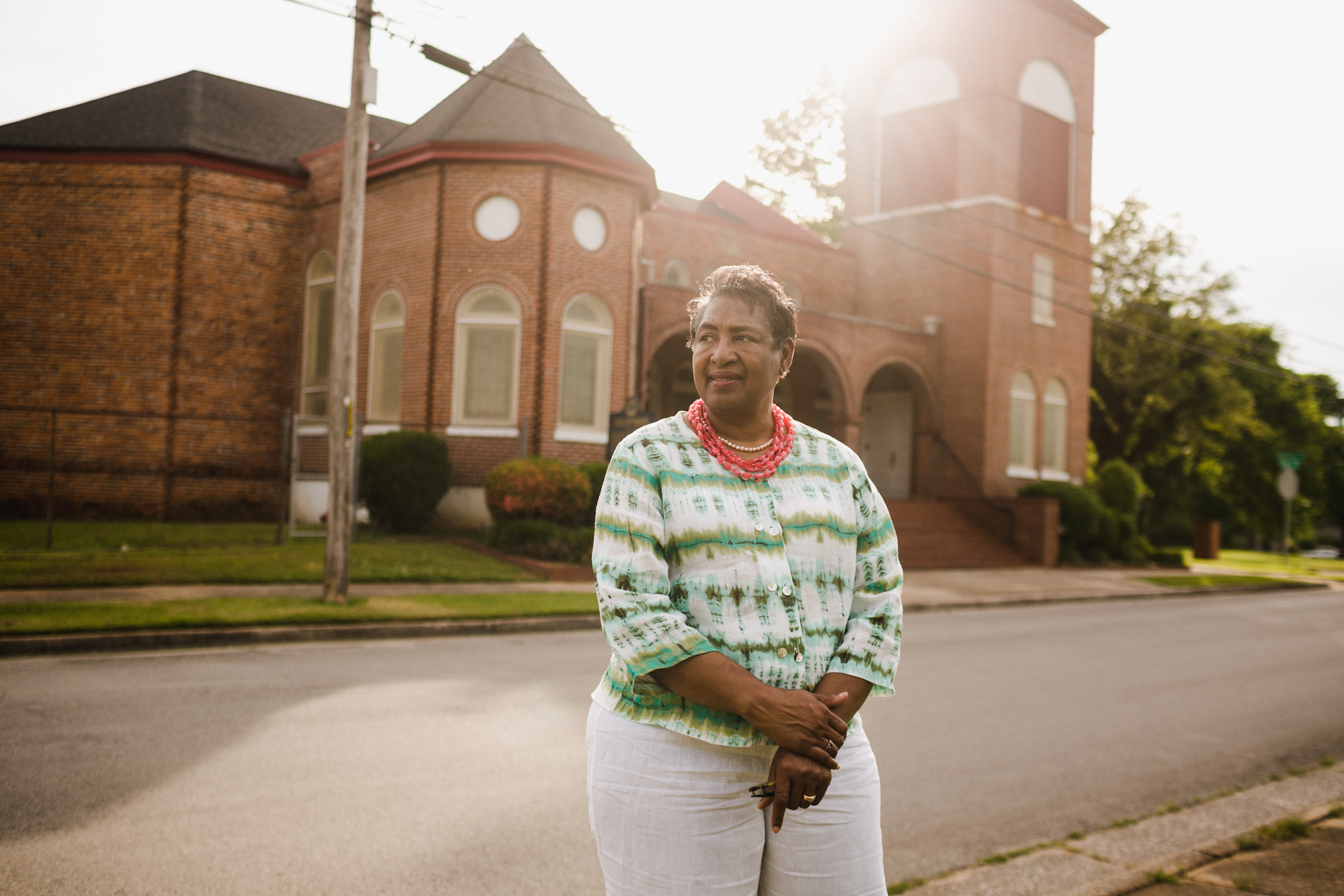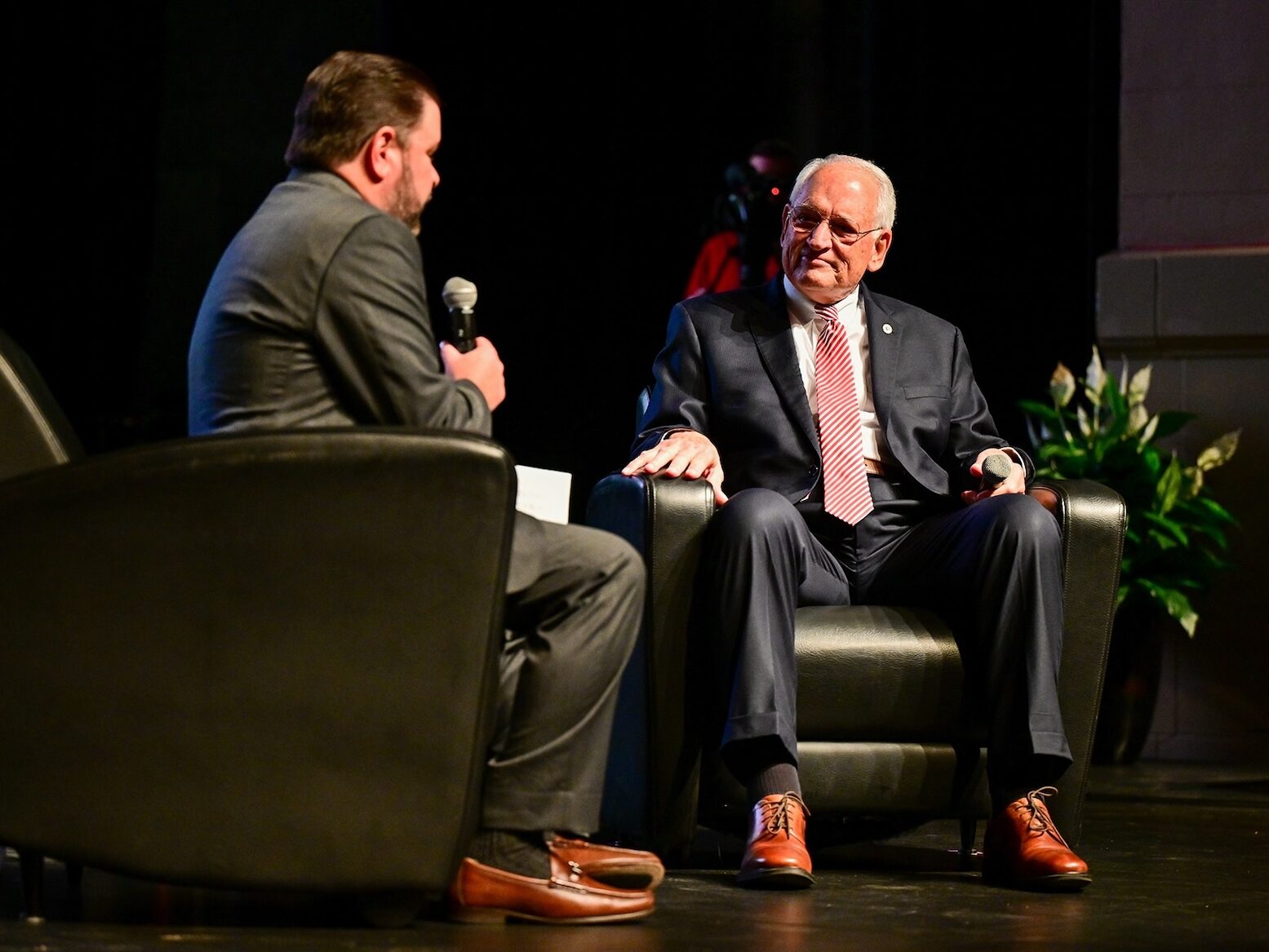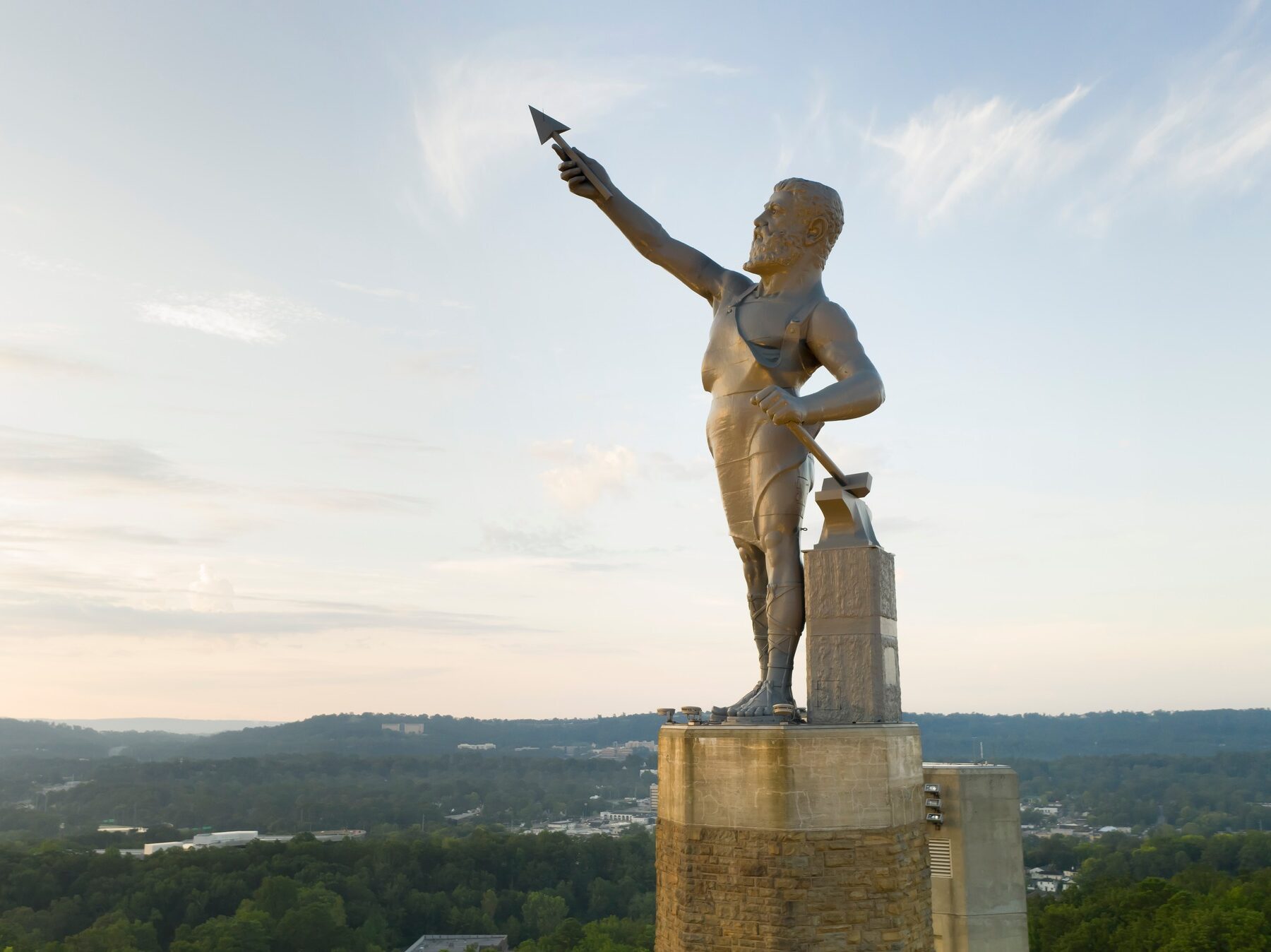Peggy Allen Towns has always had a natural inclination toward history and uncovering stories that need to be told. She recalls walking from her home on Church Street with her mother and six siblings to visit the Decatur Public Library. But it wasn’t until her mother passed away that she became an avid researcher in an effort to fill in the gaps of family history that her mother left behind. As she looked into the archives to reveal as much of her family history as possible she was captivated by new information about Civil War history that had yet to be revealed.
Then, in 2012, after retiring from working as a Congressional aide for twenty years, she published her first book Duty Driven: The Plight of North Alabama’s African Americans During the Civil War based on her findings. While serving on a Big Read committee, she did further research on what inspired Harper Lee’s To Kill a Mockingbird and the trial of the Scottsboro boys in 1933 in her hometown. This led her to write her second book in 2018 titled Scottsboro Unmasked: Decatur’s Story. Her third and most recent book, Scapegoat: The Tommy Lee Hines story, was published in 2020. This untold narrative of great tragedy is also inspired by her home of Decatur and reveals inequalities that should compel steps toward racial reconciliation.

(Wally Terry/Contributed)
As a prominent woman and historian from Alabama, SoulGrown found it timely to speak with her about Women’s History Month.
Peggy, who were the most influential women in your life? I stand on the shoulders of so many noteworthy women, but my mother, Myrtle Lyle Allen, is the most influential. My mother set a foundation for who I am and her influence is interwoven in every single fiber of my life. She wanted the best for her family and taught us the values of hard work, independence, resilience, and kindness. She led by example with a quiet determination, faith, and a hope that nothing is impossible. She would say, “What God has for you is for you.” She had many sayings and lessons that left impressions, but the ones that remain a constant are to love God, treat others as you want to be treated, and “if you don’t know where you’ve been, you’ll never know where you are going.” The latter, the power of knowledge, of knowing who we are individually and collectively as a society where we come from and our connection to one another is not only powerful but impactful. So my journey in retirement has been to be a voice that will find and share the stories of people who have been forgotten, but have contributed much to Decatur, our state, and even our world.
Why is it important to tell the stories of women in history in particular? By knowing the stories of women in history we get a better perception of their strength, their tenacity, their perseverance, and their resilience. Our stories tell about our experiences, both positive and negative. Our stories dismiss the myth that women are weak, but instead show their courage and determination. It also gives us clarity on how we connect to one another. Our stories build a bridge from the present to the past, whereby we can learn lessons to better our communities.
What marks a woman as strong? A strong woman loves and shows patience and an ability to help others. She demonstrates a drive to keep going, keep moving, keep pressing despite situations. They use obstacles as stepping stones to advance, rather than stumbling blocks (see Philippians 4:13). A strong woman has a spirit that lifts others up as she goes.
What are you most proud of personally? First, the gift of family. Second, God has blessed me with a platform to be a voice for so many. He has used me in pamphlets, historical markers, sites on historical registries, and in my books. For example, from Duty Driven: The Plight of North Alabama’s African Americans During the Civil War I shared the unforgettable soldiers who served the 106th United States Colored Infantry (raised in Decatur, the first of only two Colored Troop regiments organized in Alabama). Then, Scottsboro Unmasked: Decatur’s Story was the first of its genre to tell how the Scottsboro Boys trials impacted citizens in Decatur. Lastly, Scapegoat: The Tommy Lee Hines Story. These books make me proud because they share the lasting legacy of these people. I also try to share a plethora of other stories through my social media of ordinary people that have done extraordinary things particuarly in Morgan County and in our state. I really never imagined that I would be the recipient of awards or recognized for “sharing history, telling our stories.” But last year I received the prestigious Virginia Van Der Veer Hamilton Awards from the Alabama Historcial Association. Then, I was honored with Alabama Mountain Lake’s String of Pearls. The Decatur-Morgan County Chamber of Commerce’s ATHENA Leadership Award was given to me at the end of March, and I am among the inductees into the Morgan County Leadership Hall of Fame. Wow! I am so humbled by all of this.
Feature image is by Abraham Rowe Photography for Muscle Shoals National Heritage Area. This story is sponsored by Decatur Morgan County Tourism.
Why is Decatur special? Decatur is special to me beause it’s home. It is where my parents brought me home from the hospital. It’s where I grew up and went to school. It’s where I first registered to vote. My grandmother, Bertha Polk Lyle (daughter of a slave), was the first African American female pastor/preacher in town, and therefore it is where I was baptized. It’s where most of my family and freinds are. It’s where I retired and where I continue to try to make a difference with the incredible assistance of so many who join me in telling our stories. It’s where my roots are and will always be.




